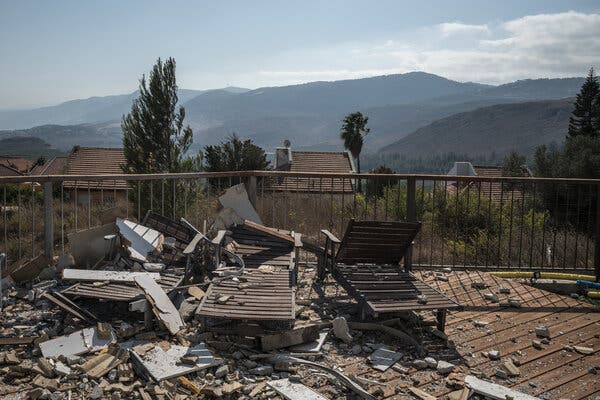Iran’s second missile barrage against Israel is unlikely to deter its foe, experts say, but may help retain the support of the “Axis of Resistance” it has built up over years.

Iran’s barrage of missiles against Israel may have inflicted minimal military damage on its regional foe, but analysts say that Tehran saw it as a critical move to shore up regional support — and a signal to Western powers that without quick diplomatic pressure the conflict could spiral even further.
Israel, encouraged by the decapitation of the leadership of Iran’s most powerful regional ally, Hezbollah, and its assassinations of Iranian allies across the region, is unlikely to be deterred after Iran’s overnight strike, in which the majority of more than 180 ballistic missiles were shot down by Israeli air defenses with the help of the U.S. military.
Citing what it said were Western promises of renewed diplomacy to end the conflict, Iran had largely stayed restrained in the face of the July assassination in Tehran of Hamas’s political leader, Ismail Haniyeh and as Israel intensified the fight against Hezbollah over recent weeks, culminating with the killing of the group’s leader and a ground invasion in Lebanon.
But with no diplomatic solutions in sight, Iran found itself facing an inversion of its regional strategy: It had built the partnerships of its “Axis of Resistance” — with groups in Gaza, Iraq, Lebanon, Yemen and elsewhere — on the theory that they could fight on its behalf, avoiding a direct and more dangerous confrontation with Israel. Instead, it was Iran that had to strike.
Even facing the risk of blows from Israel that could threaten their power at home, Iran’s leaders have worried that the cost of inaction was higher: If Iran did not retaliate for Israel’s assassination last week of the Hezbollah leader Hassan Nasrallah, perhaps the most influential figure in its network, unease could spread among its partners.
“The strategic advantage at this point is that it maintains the loyalty of these groups across the region, and therefore maintains its influence,” said Maha Yahya, director of the Carnegie Middle East Center in Beirut, Lebanon’s capital.



